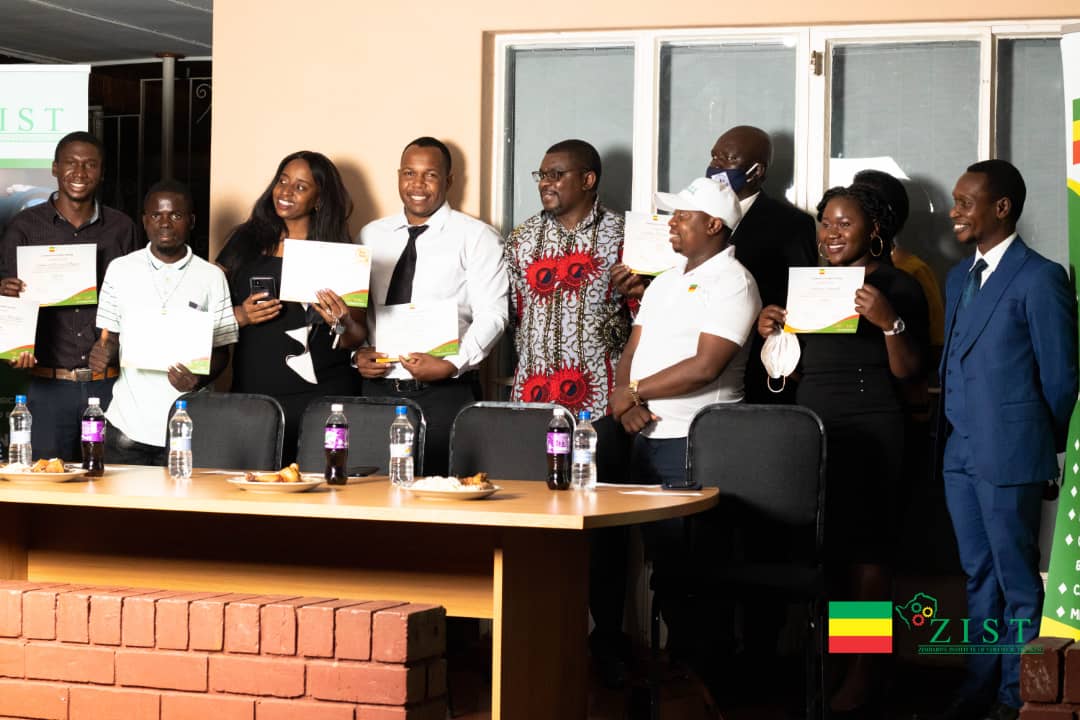|
Getting your Trinity Audio player ready...
|
The Zimbabwe Institute of Strategic Thinking (ZIST) is morphing into one of the best citadels for offering sound leadership and development programmes in the country and globally.
Officiating the ZIST graduation ceremony in Harare yesterday, Apostle Batsiranayi Java, the Founder of the Tabernacle of Grace Ministries paid homage to the ZIST initiative for its vision that guides development in the country.
The faith and business leader gave an analogy of how Singapore – an island country that at one time was very poor to the extent that Malaysia intended to buy it and make it one of its provinces – has emerged to be one of the biggest Asian exporters after it made a massive investment in education and technology in a similar way that ZIST intends to bring about a paradigm change in the mentality of Zimbabweans to foster sustainable development.
“Investing in skills and knowledge is a key ingredient for sustainable development. I applaud ZIST for taking this route. In a similar fashion, Singapore and Dubai – countries with very few natural resources compared to our motherland Zimbabwe invested in skills development and technology and have now become tourist attractions and technological hubs exporting knowledge and expertise worldwide. They are focusing on massive production and have thus become wealthy countries. They achieved that feat because they understood the importance of investing in the human mind just like what ZIST here is doing.
“In everything we do, a sound vision guides development be it at the family, community, institution or national level. Strategic management is key in realising our visions and aspirations. ZIST trains people, shapes human minds into planning, projecting, risk analysis and management among other key competencies necessary for attaining development,” Apostle Java said.
According to reports, the world has lost in excess of US$7 trillion due to the COVID-19 pandemic. To reverse the losses, Apostle Java said it requires people with skill-based capabilities who can pool their knowledge to proffer solutions to steer humanity away from the current challenges. He emphasised the need to tap into the wisdom of technocrats like Dr Gideon Gono, Dr Shingi Munyeza, Dr Nigel Chanakira, and Engineer Ben Manyenyeni, just to mention a few so as to find solutions on how to turn around the Zimbabwean economy so it takes a new leaf towards economic revival.
Dr Beatrice Maupa, a lecturer at the University of Zimbabwe’s faculty of education underscored the need for citizens to embrace the aspect of leadership to positively influence society in pursuit of prosperity underpinned by political, social and economic development.
She urged graduates to make use of their acquired knowledge and positively influence others.
“To all the graduates, I urge you to go out into the world and practice what you learnt from ZIST. Your action in positively impacting society should reflect the reservoir of knowledge that ZIST is. You should be innovative and use your competencies to stimulate development. These certificates you are acquiring today should not just be for display in your lounges, This should not be the end but the beginning of a long journey in acquiring knowledge through further studies,” Dr. Maupa said.
Yothando Tarume who emerged as the Best Student in the Leadership and Development course pledged to use her newly acquired knowledge to improve her leadership skills at her workplace. That was the same sentiment from Lesly Manomano who also passed the course with a Merit award.
Dr Eric Tinashe Muzamhindo, the ZIST President said his institution stands ready to provide policy direction and strategic guidance to individuals, institutions, political parties as well as private or public entities.
“Our services include critical and strategic thinking; solution-focused thinking; developing and grooming; academic research and publication; cognitive knowledge; strategic engagement; research-based strategy; policy advocacy and advisory; organisational leadership and development consultancy; capacity strengthening; and mindset transformation,” Dr Muzamhindo said.






